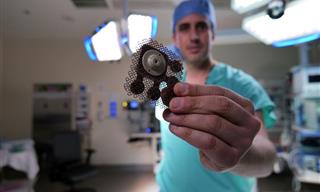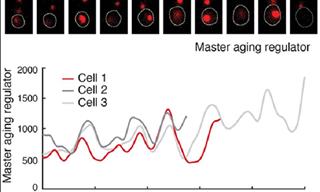A fresh glimmer of hope has emerged for pancreatic cancer patients. A first-of-its-kind telehealth-based cancer clinical trial offers patients targeted therapy from the comfort of their homes. Dubbed "smart drugs," these precision therapies singularly pinpoint the genetic anomalies responsible for driving the proliferation of cancer cells.
Related: 8 Signs of Pancreatic Cancer You Should Be Aware of!
The primary objective of this trial was to investigate fibroblast growth factor receptors (FGFR), identified in around one percent of patients with pancreatic cancer. Through the implementation of telehealth techniques in this study, patients throughout the United States can gain access to oral targeted drug therapies conveniently, eliminating the need for extensive travel.

Dr. Sameek Roychowdhury, a medical oncologist at The Ohio State University Cancer Center, stresses that bringing clinical trial treatments to patients and collaborating with local oncologists nationwide significantly enhances patient access to these therapies. This approach also improves the potential for impactful discoveries through the enrollment of larger groups of patients, according to a press statement.
Pancreatic cancer, though rare, is a highly aggressive disease that impacts approximately 64,000 people every year. Detection often takes place during the advanced stages, which complicates the treatment process. Surgical procedures show promise in the early stages, yet early identification remains a challenge, which limits the availability of recommended treatment selections. This study aims to enhance the availability of clinical trials for targeted drug therapies, thus addressing a pivotal void in pancreatic cancer treatment.
In cancer patients, numerous gene mutations could be present, but identifying the ones influencing cancer behavior and utilizing innovative treatments to address these mutations forms the foundation of 'smart drug’ – or precision cancer medicine – research, says Roychowdhury. Clinical trials for precision oncology are hindered by the rarity of certain gene mutations, which deters pharmaceutical companies from undertaking such trials due to a lack of interest and feasibility.

This trial draws inspiration from FGFR research supported by Gateway for Cancer Research, a nonprofit organization dedicated to funding early-phase clinical trials for various types of cancer. Gateway is a proponent of decentralized oncology research and seeks to raise awareness about telemedicine-based trials, ensuring that patients comprehend their options no matter how close they are to a research site.
Related: This App Can Detect Pancreatic Cancer from Just a Photo!
With ten years of expertise in FGFR intelligent medications, Dr. Roychowdhury spearheads this groundbreaking therapy. Along with the clinical trial, his team has established a patient registry to advance research into rare forms of pancreatic cancer.
Patient enrollment for the trial is set to begin in the second half of 2023. To find out more about taking part in the research or becoming a member of the registry, reach out to [email protected].
 Go to BabaMail
Go to BabaMail
























































